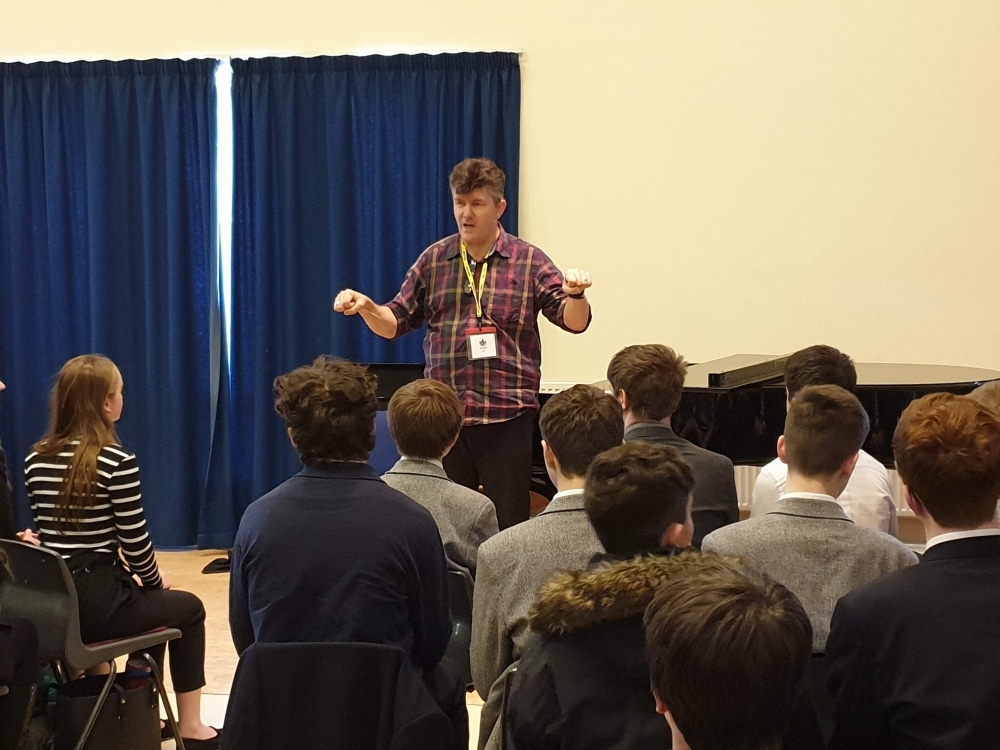Pete Churchill, a composer, performer and Head of the Jazz Composition course at London’s Royal Academy of Music, led the students, from five local school choirs, in a mass singing session at The Judd School in Tonbridge.
The aims of the afternoon were to develop the pupils’ ability to learn music by ear, building confidence and enthusiasm in their singing.
Instead of sheet music, Pete used a combination of hand signals – called Kodály signals – and call-and-response techniques to teach three pieces of music in four-part harmony.
He hopes that students will be able to use the techniques learned in the session to analyse and learn other pieces of music.
“I want them to go away with something – not just the tune, but something they can transfer to other repertoires,” he said.
“I’m trying to get them to engage three sorts of memory: Kinetic (movement-related), oral and visual, and also trying to get them to mimic and learn by mimicking, which is the most natural way to learn.”
Pete believes musical notation is a ‘necessary evil’, and that avoiding it in rehearsal allows a focus on being more creative with the music.
“One of the things that sets high-level musicians of all genres apart from others – people who are on a very high level – is that they’re totally, physically connected with what they’re doing.
“Teaching by ear is a chance to make students think ‘What am I doing with my hands? How am I sitting?’ because there’s nowhere to hide.
“At some point you have to think about that as a performer.”
Over the course of the afternoon, the choir – which came from Judd, Tonbridge, Weald of Kent, Trinity and Radnor House schools – sang pieces written by Curtis Mayfield and Duke Ellington, finishing with Jimmy Cliff’s ‘Long Road to Travel’.
It is the first time the Tonbridge Music Club has run a training session like this for schools, in what is part of a wider initiative to drive youth music education and engagement with the club.
A spokesperson for the club said: “As part of our Enrichment Programme, we are committed to nurturing the talent of local young musicians.
“With his innate musicianship and infectious energy and enthusiasm, Pete was ideally suited to work with this group of talented young singers. The room was buzzing. It was a great first session, which the club hopes can be a model for future events.”
As for Pete, he believes that this style of rehearsal can help assuage issues of self-consciousness in young performers today.
He commented at the event: “It’s hard at this age to get them to abandon their self-image – actually harder than it was 15 years ago – but I can already see in this room that the kids are quite happy to step outside the box and commit to a task. That’s really good news.”








